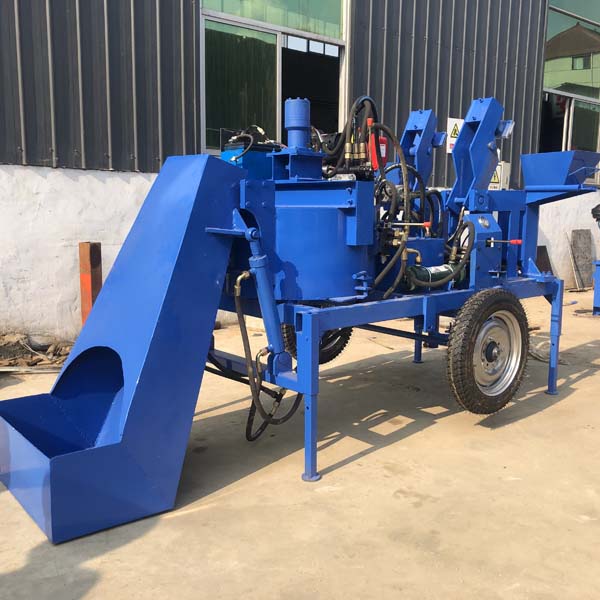
Image source Aiweibrickmachine
Title: Strategies for Handling Economic Downturns in the Block Industry
Introduction
The block industry, a vital component of the construction sector, is not immune to the economic fluctuations that can impact businesses on a global scale. Economic downturns pose significant challenges for companies involved in manufacturing and supplying construction materials, including blocks. However, with careful planning and strategic decision-making, businesses in the block industry can navigate through tough economic times and emerge stronger. In this article, we will explore key strategies that can help companies in the block industry weather economic downturns and sustain their operations.
- Diversification of Product Offerings
One effective strategy for handling economic downturns in the block industry is to diversify product offerings. Instead of solely relying on traditional concrete blocks, consider expanding the range to include specialized blocks or value-added products. These could include lightweight blocks, insulated blocks, or environmentally friendly options. Diversification not only enhances the company’s resilience to economic fluctuations but also opens up new market segments and revenue streams.
- Cost Management and Operational Efficiency
During economic downturns, cost management becomes crucial for survival. Review and streamline operational processes to identify areas where costs can be reduced without compromising product quality. Implementing energy-efficient technologies, optimizing raw material usage, and enhancing supply chain efficiency can contribute to significant cost savings. Additionally, negotiating with suppliers for better terms and exploring bulk purchasing options can further alleviate financial pressure.
- Strategic Marketing and Customer Retention
Maintaining a strong presence in the market is essential during economic downturns. Strategic marketing efforts can help position the block company as a reliable and competitive player in the industry. Consider targeted advertising, promotions, and loyalty programs to retain existing customers and attract new ones. Offering incentives such as discounts for bulk purchases or extended credit terms can be instrumental in maintaining customer relationships during challenging economic times.
- Investment in Research and Development
Innovation is a key driver of long-term success, and investing in research and development (R&D) can provide a competitive edge, even in economic downturns. Explore ways to enhance the quality of blocks, improve manufacturing processes, or develop sustainable alternatives. Innovation not only strengthens the company’s position in the market but can also lead to cost savings and operational efficiencies in the long run.
- Financial Planning and Risk Mitigation
In uncertain economic climates, robust financial planning is crucial. Develop contingency plans that include cash flow forecasting, debt management, and risk mitigation strategies. Building up cash reserves during prosperous times can provide a financial cushion during downturns. Consider exploring financial instruments such as hedging to manage currency and commodity price risks, reducing vulnerability to external economic shocks.
- Strategic Partnerships and Collaborations
Collaborating with other businesses in the construction ecosystem can create synergies that benefit all parties involved. Forming strategic partnerships with suppliers, contractors, or even competitors can lead to cost-sharing opportunities, shared resources, and access to a broader customer base. Such collaborations can enhance the overall resilience of the block industry by creating a network of support during challenging economic conditions.
- Employee Training and Retention
Investing in the skills and well-being of employees is critical during economic downturns. Cross-train employees to handle multiple roles, improving flexibility in workforce deployment. Additionally, fostering a positive work environment and providing opportunities for professional development can enhance employee morale and retention. A skilled and motivated workforce is an invaluable asset during both prosperous and challenging economic times.
- Adaptation to Market Trends
Stay attuned to market trends and adjust business strategies accordingly. In times of economic downturn, there may be shifts in construction practices, materials preferences, or environmental regulations. Being proactive in adapting to these changes can position the block company as an industry leader and ensure its continued relevance in the market.
Conclusion
Navigating economic downturns in the block industry requires a combination of proactive planning, strategic decision-making, and adaptability. By diversifying product offerings, managing costs, investing in research and development, and fostering strong relationships with customers and partners, block companies can not only survive challenging economic times but also emerge stronger and more resilient. The key lies in a holistic approach that encompasses operational efficiency, financial stability, and a forward-looking mindset to capitalize on opportunities even in the face of adversity.
